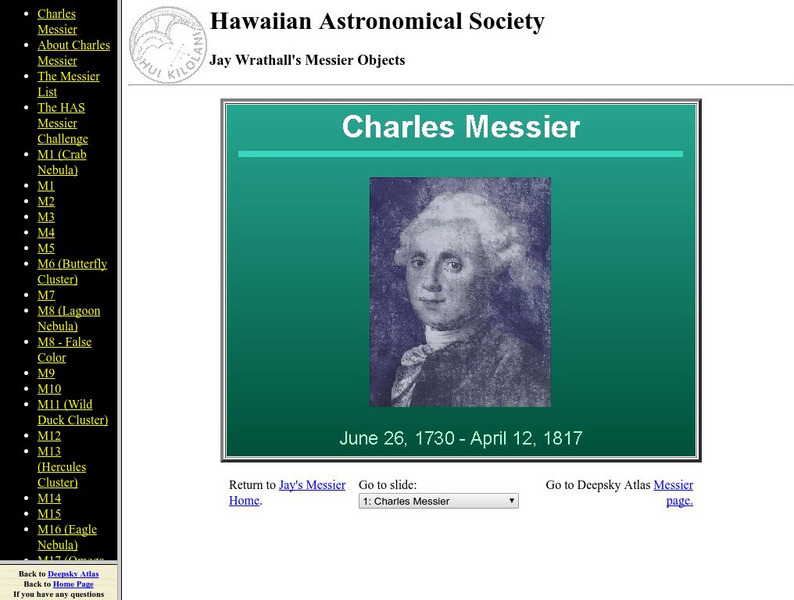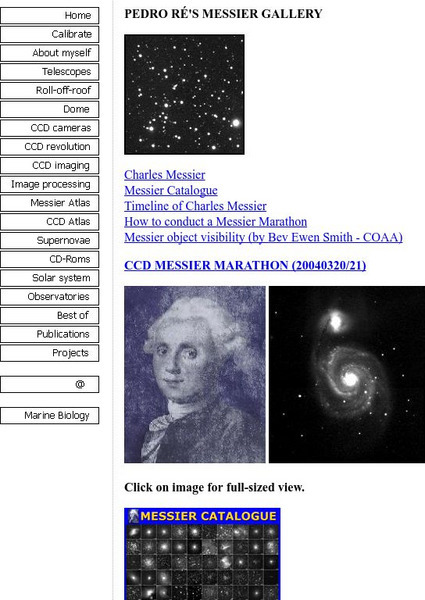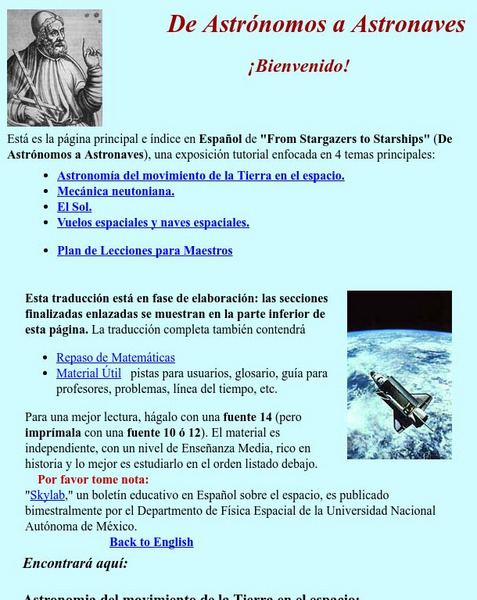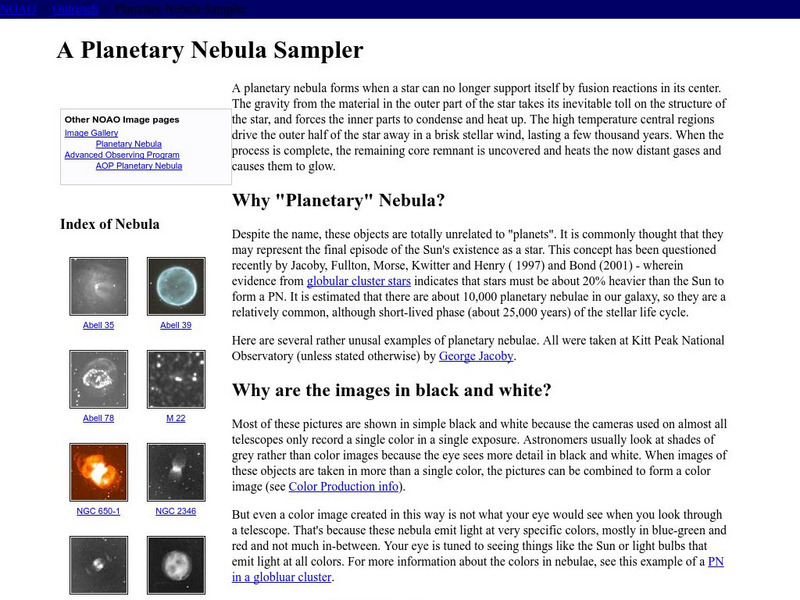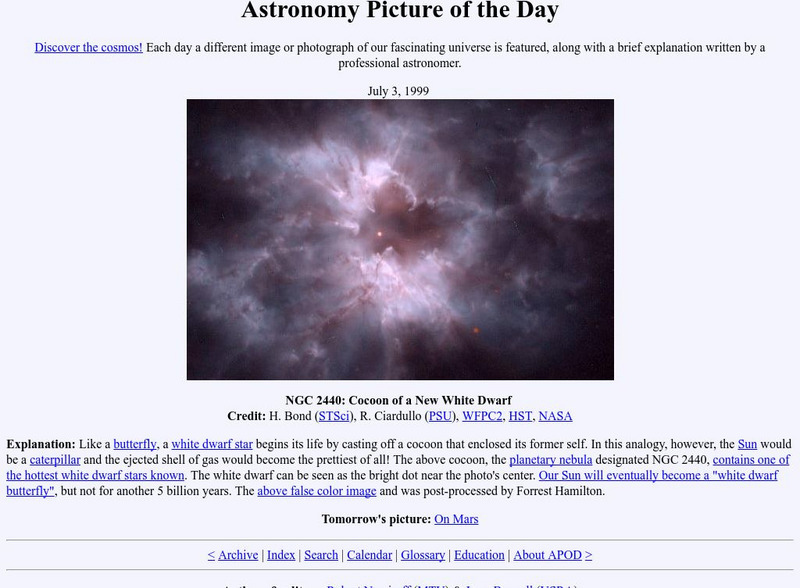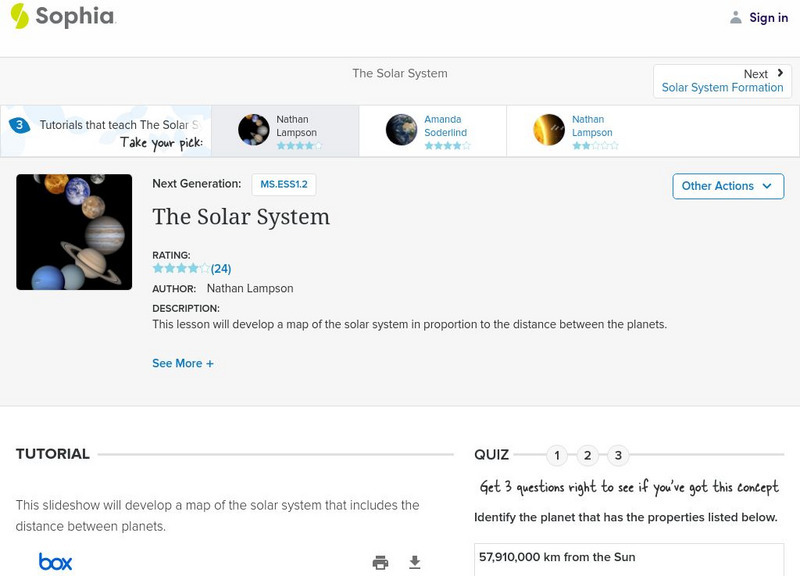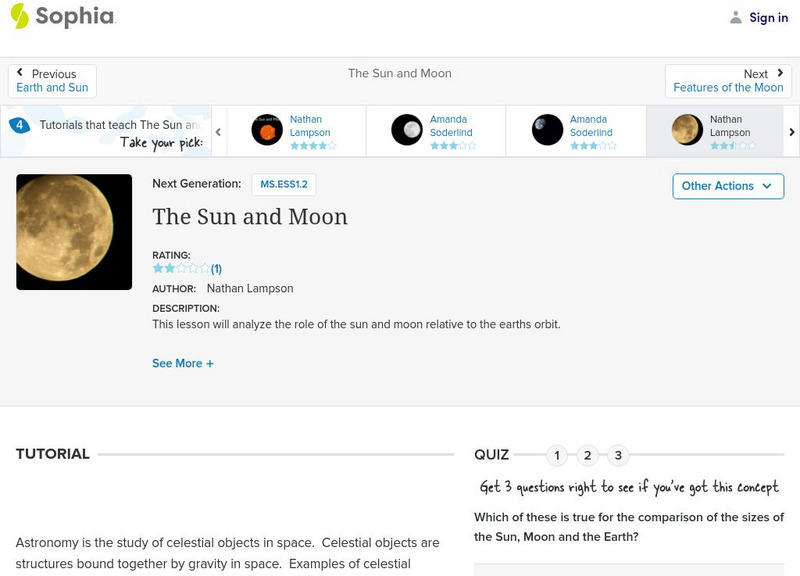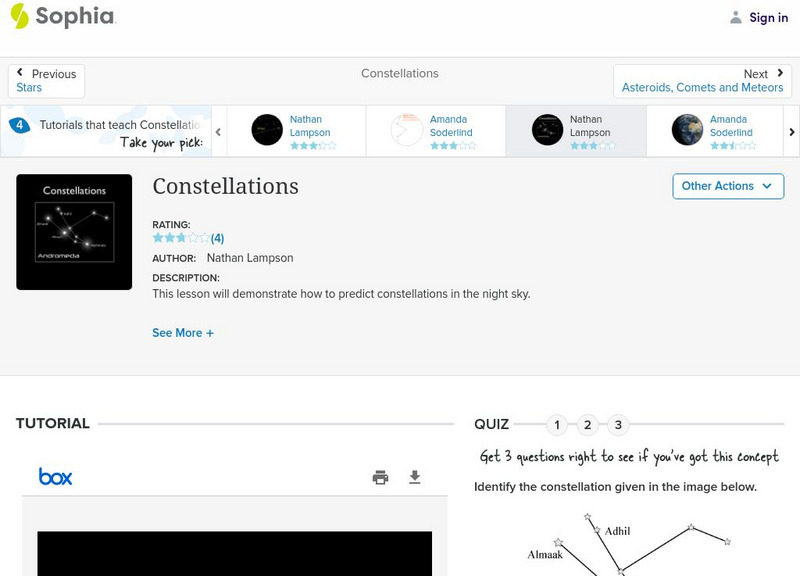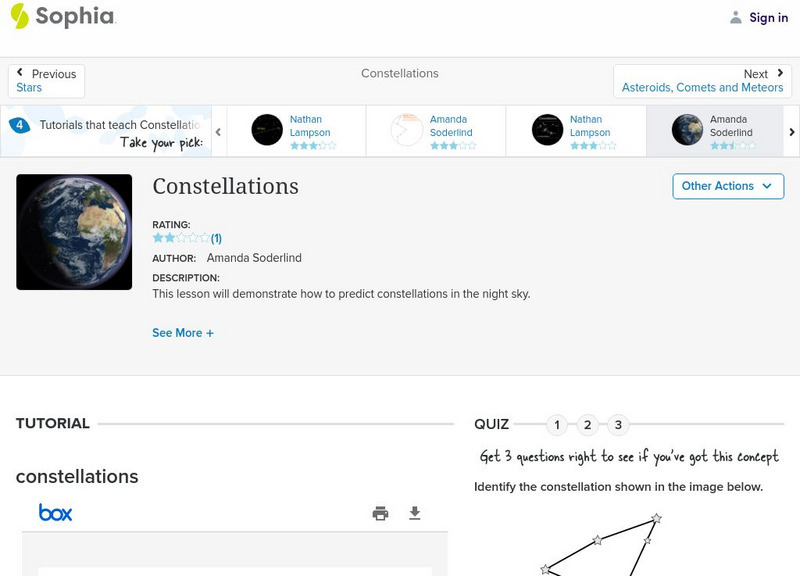Space Telescope Science Institute
The Hubble Heritage Project: Crab Nebula
A picture of the Crab Nebula and accompanying text.
Other
Has: Charles Messier
Brief, concise facts about Charles Messier and his catalog of comets, galaxies, and other astronomical bodies. Included are photographs of each of the 110 objects listed in his catalog.
Other
Pedro Re's Messier Gallery
Are you looking for information on Charles Messier? This site includes a detailed biography of his life along with a timeline, how to conduct a Messier Marathon, and photographs of the astronomical objects in Messier's catalog.
Other
Kid Power: Astronomy for Kids
Young children can find facts about the Solar System, the Sun, meteorites, stars, galaxies, planets, our moon, comets, asteroids, and space exploration. Pages offer clear photos and bullet-point information, which is easy to read and...
Other
Phy6: De Astronomos a Astronaves
This site contains four main categories: Astronomy of the Earth's motion in space, Newtonian mechanics, the sun and spaceflight and spacecraft.
Other
Nine planets.org: Ptolemy
This site from the University of Arizona provides a background of Ptolemy's profound influence in the areas of astronomy, geography, and cartography. Includes good pictures and related links.
Other
National Optical Astronomy Observatory: A Planetary Nebula Sampler
A planetary nebula forms when a star can no longer support itself by fusion reactions in its center. This NOAO site is also illustrated.
Other
Christopher Crockett: The Astronomy Word of the Week Is "Barycenter"
While astronomers and philosophers have long mused on the possibility of other solar systems, the first planets confirmed to orbit a star other than our Sun weren't found until 1992. The reason it took so long is that it's really hard!...
Enchanted Learning
Enchanted Learning: Zoom Astronomy
Where is our Solar System? How far away is the sun? What makes up the sun? Find out all you want to know about our solar system. This is a comprehensive on-line site about space and astronomy. Check out all of the excitement!
NASA
Nasa: Astronomy Picture of the Day: White Dwarf Cocoon
A white dwarf star begins its life by "casting off a cocoon (nebula)that enclosed its former self." There are many links within the text to related topics.
Sophia Learning
Sophia: The Solar System: Lesson 1
This lesson will develop a map of the solar system in proportion to the distance between the planets. It is 1 of 3 in the series titled "The Solar System."
Sophia Learning
Sophia: The Sun and Moon: Lesson 3
This lesson will analyze the role of the sun and moon relative to the earth's orbit. It is 3 of 4 in the series titled "The Sun and Moon."
Sophia Learning
Sophia: The Sun and Moon: Lesson 4
This lesson will analyze the role of the sun and moon relative to the earth's orbit. It is 4 of 4 in the series titled "The Sun and Moon."
Ducksters
Ducksters: Astronomy for Kids: The Planet Uranus
Kids learn about the ice giant planet Uranus of the Solar System including fun facts, mass, day, year, and distance from the Sun. Astronomy for kids and teachers.
Ducksters
Ducksters: Astronomy for Kids: The Planet Venus
Kids learn about the planet Venus of the Solar System including fun facts, mass, day, year, and distance from the Sun. Astronomy for kids and teachers.
Sophia Learning
Sophia: Constellations: Lesson 2
This lesson will demonstrate how to predict constellations in the night sky. It is 2 of 4 in the series titled "Constellations."
Sophia Learning
Sophia: Constellations: Lesson 3
This lesson will demonstrate how to predict constellations in the night sky. It is 3 of 4 in the series titled "Constellations."
Sophia Learning
Sophia: Constellations: Lesson 1
This lesson will demonstrate how to predict constellations in the night sky. It is 1 of 4 in the series titled "Constellations."
Ducksters
Ducksters: History: Renaissance Astronomy for Kids
Kids learn about the science of astronomy during the Renaissance. Discoveries by Copernicus, Galileo, and Kepler.
Ducksters
Ducksters: Quiz: Renaissance Astronomy for Kids
History Questions: Renaissance Astronomy Quiz, Test, and WebQuest
Ducksters
Ducksters: Space Science: Astronomy for Kids
Kids learn about astronomy, the study of outer space including the stars, planets, comets, black holes, and the Solar System. History and astronomers in this astronomy for teachers and kids section.
Ducksters
Ducksters: Astronomy for Kids: Asteroids
Kids learn about asteroids in the science of astronomy. Large chunks of rock and metal that orbit the Sun including the asteroid belt, Ceres, and Vesta.
Ducksters
Ducksters: Astronomy for Kids: Astronauts
Kids learn about the astronauts who travel and explore outer space including spacesuits, fun facts, and famous adventurers like Buzz Aldrin, Yuri Gagarin, and Sally Ride.
Ducksters
Ducksters: Astronomy for Kids: Glossary and Terms
Kids learn about the glossary and terms for the science of astronomy including words and definitions such as asteroid, comet, meteoroid, galaxy, eclipse, etc.



